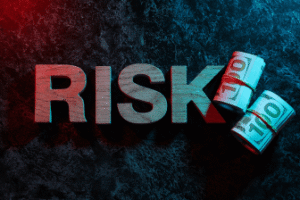
FRM Course Accelerate Your Career
FRM Course Accelerate Your Career
In the contemporary dynamic financial environment, risk is no longer viewed only as a challenge but also as a strategic opportunity. Organizations today are actively seeking professionals who can not only identify possible financial pitfalls but also implement progressive measures to counteract them.
Financial analysts, who were once seen merely as number crunchers in the early stages of their careers, are now moving into higher strategic roles such as risk managers. This transition is not accidental. In most cases, it results from methodical upskilling, often through specialized Financial Risk Management (FRM) courses.
In this article, we will discuss FRM course details and how it can serve as a powerful catapult, launching professionals from analyst roles into leadership positions in risk management.
Analyst’s Role
A financial analyst plays a vital role in assessing investment prospects, compiling financial reports, conducting analysis, and making business forecasts. Although these duties are essential, they often mark the entry level of a finance career.
Analysts typically work in a reactive environment, offering insights that are supported by data after trends have already materialized. While the learning in this phase is tremendous, career development may stagnate without specialization.
Furthermore, analyzing only historical and present data is not enough in today’s volatile markets. These markets are shaped by economic uncertainty, changing regulations, and global disruptions. Employers now seek professionals who can anticipate risks, understand regulatory implications, and contribute to strategic decision-making.
Risk Management Skill Requirements
Risk management has evolved. It is no longer a back-office support function but now sits at the core of boardroom decision-making. A competent financial risk manager must:
- Evaluate credit, market, liquidity, and operational risks.
- Navigate complex regulatory environments.
- Develop robust systems that minimize or prevent financial losses.
Transitioning into this role cannot be achieved through on-the-job learning alone. It requires in-depth knowledge of risk theory, regulations, quantitative analysis, scenario modeling, and global financial systems. These topics are rarely covered in traditional finance training or standard analytical roles.
How a Financial Risk Management Course Can Bridge the Gap
A structured FRM course provides a systematic framework to help analysts make this career leap. Here’s how:
- Foundation in Risk Concepts: An FRM course begins with the basics. It introduces different types of financial risks, the risk-return trade-off, and modern concepts in risk management. This foundational training is especially crucial for analysts who lack formal education in risk-specific frameworks.
- Quantitative Proficiency: Risk management heavily relies on advanced mathematics, statistics, and financial modeling. A well-structured Financial risk management course equips learners with the tools needed to apply these quantitative methods in real-world financial contexts. This significantly enhances their analytical capabilities.
- Knowledge of Global Regulatory Standards: FRM training programs cover global regulatory frameworks, including Basel III, Dodd-Frank, and stress testing requirements. Understanding these regulations allows aspiring risk managers to align financial planning with compliance — a key expectation from senior management today.
- Real-World Case Studies: Most reputed FRM courses incorporate case-based learning. This approach helps participants apply theoretical concepts to practical business scenarios. It acts as a bridge between classroom learning and boardroom strategy.
- Leadership and Soft Skills: Strong communication skills are vital. Risk managers must clearly articulate their decisions to stakeholders, defend those decisions confidently, and lead cross-functional teams. Modern FRM programs now integrate modules on leadership, communication, and ethical decision-making.
Career Benefits
- Increased Role Versatility: A risk-trained analyst can transition into multiple roles — including credit risk manager, market risk analyst, operational risk consultant, and more. This creates diverse opportunities both within and beyond the finance industry.
- Enhanced Decision-Making Authority: Professionals with FRM training are valued not only for their number-crunching abilities but also for their strategic foresight. This often earns them a seat at decision-making tables faster than their generalist counterparts.
- Greater Earning Potential: Certified risk professionals tend to command higher salaries. This is due to the specialized nature of their role and the increased responsibility they carry.
Global Mobility
Risk management frameworks have global relevance.
With the right FRM certification, professionals can work in international banks, consulting firms, fintech companies, and regulatory bodies around the world.
This global applicability makes risk management a highly mobile and in-demand profession.
Things to Consider in a Financial Risk Management Course
Professionals should ensure that the FRM course they choose includes the following:
- Certification or accreditation recognized by the industry.
- Curriculum based on global risk standards.
- Experienced faculty with both academic and corporate backgrounds.
- Opportunities for internships or capstone projects.
- Career services or placement assistance.
- A flexible learning format, especially important for working professionals.
It’s important to note that transitioning from analyst to risk manager is not a one-time shift. It is an ongoing journey.
Risk management is a dynamic field. Emerging threats like cyber risk, ESG risk, and geopolitical instability continue to reshape the industry.
Staying relevant through certifications, seminars, and short-term modules is essential for sustained career growth.
Conclusion
The Global Risk Management Institute (GRMI) is one of the leading institutions offering industry-aligned education in risk management.
GRMI provides a practice-focused postgraduate program specifically tailored to the demands of working professionals or those aiming to transition into the risk domain.
With its strong industry connections, practical curriculum, and emphasis on both technical and strategic skill development, GRMI acts as a powerful career catalyst.
The journey from being an analyst buried in spreadsheets to becoming a risk manager who influences boardroom decisions is not just a dream. It is a real and attainable goal — for those who invest in the right education.
In a fast-evolving financial world, an FRM course — especially one offered by an institute like GRMI — is not just a credential. It is a career-altering milestone.
You may also like

Which careers are truly safe from layoffs in 2026?

What Are the 3 Types of Credit Risk?


